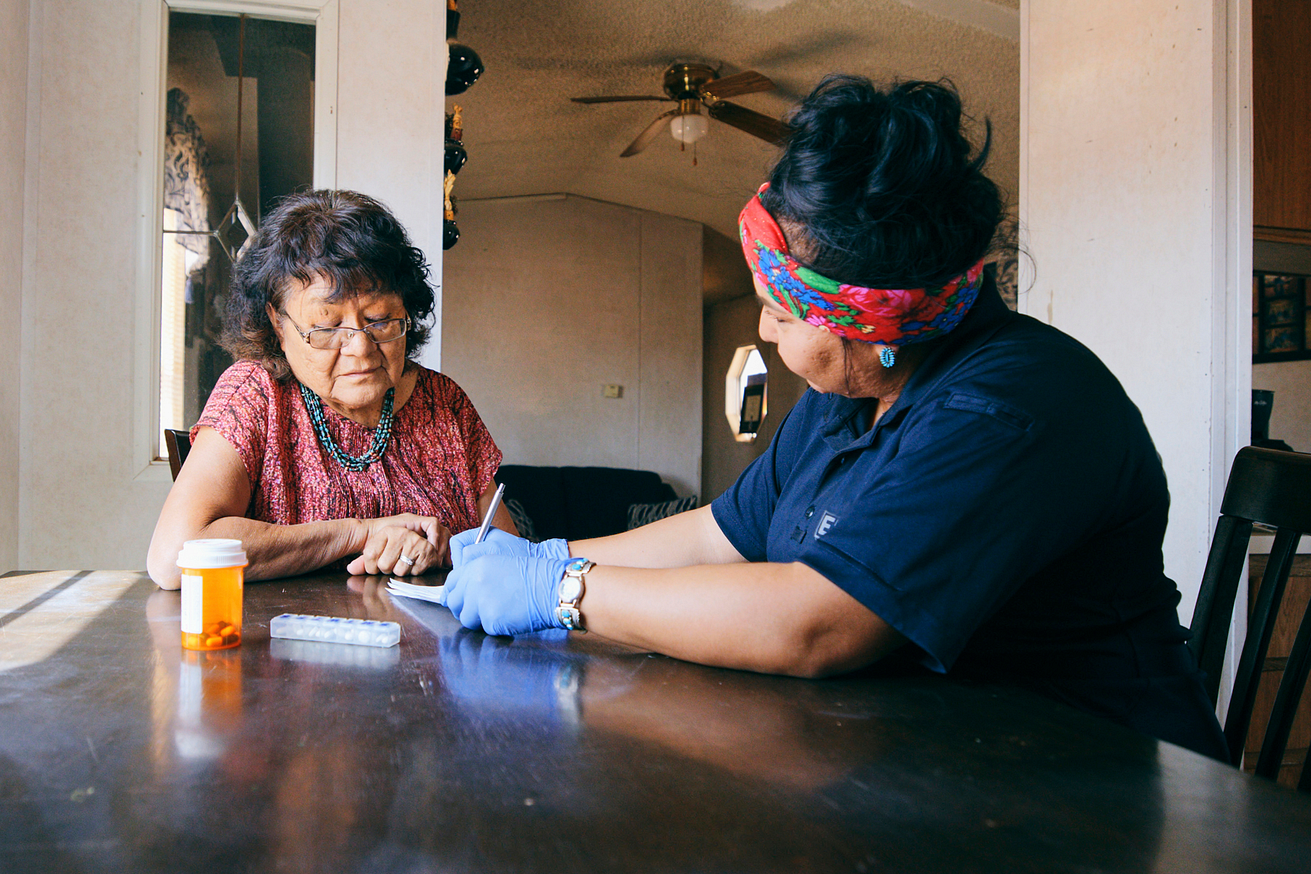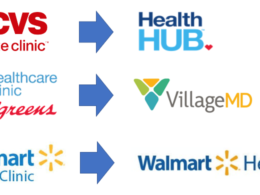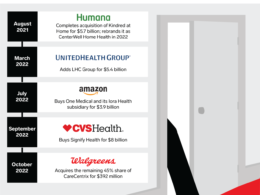Health Systems Transformation Institute (HSTI) research institute and knowledge portal
Joaquim Cardoso MSc*
Chief Researcher, Editor and Strategy Officer (CSO)
November 14, 2022
MSC* from London Business School — MIT Sloan Masters Program
Source: The Commonwealth Fund
Executive Summary:
What is the context?
- In July 2022, the Centers for Medicare and Medicaid Services (CMS) announced plans to expand the scale and scope of the accountable care organization (ACO) program.
- To inform this effort, the authors have synthesized evidence on CMS ACOs to identify factors that have facilitated or hindered success.
What are ACOs (Accountable Care Organizations)?
- ACOs are groups of physicians, hospitals, and other providers that coordinate care for patients while being held accountable for the quality and cost of care through financial and nonfinancial levers, including payments and performance measurement.
- CMS and the Center for Medicare and Medicaid Innovation have tested several ACO models.
- While payment approaches differ, generally ACOs receive a combination of traditional fee-for-service (FFS) and prospective or capitated payments, also known as value-based payments. ACOs can share in any savings with Medicare if they improve quality.
ACOs are groups of physicians, hospitals, and other providers that coordinate care for patients while being held accountable for the quality and cost of care through financial and nonfinancial levers, including payments and performance measurement.
What is the evidence ?
- Evidence has shown ACOs have produced savings while at least maintaining quality of care, but not necessarily improving health disparities.
What are the design features that affect ACOs’ success:
- Well-designed financial incentives are critical to promoting accountability
- Benchmark design can limit success
- Without an explicit focus on equity, ACOs can produce health disparities
- Physician group–led ACOs tend to perform better than hospital-led ACOs
- Advanced primary care is associated with ACO success
- Culture matters
What are the conclusions & recommendations?
- The lessons learned from prior models should guide CMS as it seeks to provide accountable care for all, where providers are held accountable for the cost and quality of care they provide while improving health and well-being.
- Special attention should be given to structural factors that can limit or promote ACO success and that encourage or dissuade providers from engaging in the program.
ORIGINAL PUBLICATION (full version)

Designing Accountable Care: Lessons from CMS Accountable Care Organizations
The Commonwealth fund
Celli Horstman, Corinne Lewis, Melinda K. Abrams
NOVEMBER 10, 2022
In July 2022, the Centers for Medicare and Medicaid Services (CMS) announced plans to expand the scale and scope of the accountable care organization (ACO) program.
To inform this effort, we have synthesized evidence on CMS ACOs to identify factors that have facilitated or hindered success.
ACOs are groups of physicians, hospitals, and other providers that coordinate care for patients while being held accountable for the quality and cost of care through financial and nonfinancial levers, including payments and performance measurement.
CMS and the Center for Medicare and Medicaid Innovation have tested several ACO models. While payment approaches differ, generally ACOs receive a combination of traditional fee-for-service (FFS) and prospective or capitated payments, also known as value-based payments.
ACOs can share in any savings with Medicare if they improve quality.
Evidence has shown ACOs have produced savings while at least maintaining quality of care, but not necessarily improving health disparities.
Below we outline design features that affect ACOs’ success:
- 1.Well-designed financial incentives are critical to promoting accountability
- 2.Benchmark design can limit success
- 3.Without an explicit focus on equity, ACOs can produce health disparities
- 4.Physician group–led ACOs tend to perform better than hospital-led ACOs
- 5.Advanced primary care is associated with ACO success
- 6.Culture matters

1.Well-designed financial incentives are critical to promoting accountability.
Downside financial risk, in which ACOs face potential losses for not meeting expectations, may motivate care delivery changes, particularly among ACOs that have previous experience with innovative payment approaches.
But it also can discourage participation, especially among providers less experienced with non-FFS payment models and those serving rural populations that have smaller margins.
CMS should carefully consider which ACOs should be required to take on downside risk.
Further, since evidence suggests ACOs perform better over time as they adjust to risk, CMS is expected to offer several options of when ACOs will be required to take on downside risk, based on their experience with payment reform, beginning in 2024.
There is also evidence that having to make high upfront investments in infrastructure, staffing, or technology can discourage ACO participation.
To address this issue, the 2023 Medicare Physician Fee Schedule (PFS) includes funding similar to the ACO investment model, which provided advanced payments to small, rural ACOs to encourage participation.
2.Benchmark design can limit success.
ACO benchmarking methodologies, which are used to set savings targets, have been controversial because they may discourage participation by adversely impacting certain ACOs.
Well-performing ACOs may be penalized over time as they are held to increasingly high savings targets; at some point, these ACOs may be unable to cut costs any further or generate more savings.
In addition to individual benchmarks, there are regional benchmarks through which ACOs are compared to their neighbors.
ACOs serving more high-need, high-cost patients may be penalized because they underperform compared to neighboring ACOs.
In its July announcement and the 2023 PFS, CMS indicated it will adjust benchmarking methodology to address some of these concerns.
3.Without an explicit focus on equity, ACOs can produce health disparities.
ACOs in the Medicare Shared Savings Program, Medicare’s largest voluntary ACO model, serving predominately patients of color, were found to perform worse on quality measures than ACOs with fewer patients of color. They were also more likely to exit the program.
These outcomes may reflect longstanding quality disparities and possibly a lack of administrative and financial resources to address disparities in ACOs serving predominately patients of color.
However, some experts believe that ACOs have the potential to promote equity through population-based payments, so long as equity is explicitly considered in payment design.
In its recently announced Realizing Equity, Access, and Community Health (REACH) ACO model, CMS has included several activities targeting equity as well as payment adjustments to support providers serving underserved beneficiaries.

4.Physician group-led ACOs tend to perform better than hospital-led ACOs.
Evidence suggests that ACOs led by physician groups produce greater savings than ACOs led by hospitals.
This could be because physician group-led ACOs offer a narrower set of services than hospital-led ACOs and do not care for patients not covered by the ACO contract.
However, hospital-led ACOs are less likely to exit ACO programs.
To provide balance, CMS can explore ways to increase participation among physician-group ACOs when scaling the model.
Evidence suggests that ACOs led by physician groups produce greater savings than ACOs led by hospitals.
5.Advanced primary care is associated with ACO success.
ACOs that include advanced primary care models in their design — emphasizing managing complex patients, addressing behavioral and social needs, and coordinating care — tend to perform better on cost savings, quality, and population health outcomes than ACOs without it.
To better leverage the benefits of primary care, CMS can add explicit primary care delivery requirements for participating ACOs or offer higher prospective payments for primary care service delivery.
ACOs that include advanced primary care models in their design — emphasizing managing complex patients, addressing behavioral and social needs, and coordinating care — tend to perform better on cost savings, quality, and population health outcomes than ACOs without it.
6.Culture matters.
Experts have found that successful ACOs develop a strong culture that emphasizes collaboration, engagement with providers in decision-making, and feedback to providers on performance.
Strong ACO management and administration is also imperative to success. CMS can provide technical assistance and host learning collaboratives to promote both delivery and culture transformation.
Experts have found that successful ACOs develop a strong culture that emphasizes collaboration, engagement with providers in decision-making, and feedback to providers on performance.

The lessons learned from prior models should guide CMS as it seeks to provide accountable care for all, where providers are held accountable for the cost and quality of care they provide while improving health and well-being.
Special attention should be given to structural factors that can limit or promote ACO success and that encourage or dissuade providers from engaging in the program.
The lessons learned from prior models should guide CMS as it seeks to provide accountable care for all, where providers are held accountable for the cost and quality of care they provide while improving health and well-being.
Special attention should be given to structural factors that can limit or promote ACO success and that encourage or dissuade providers from engaging in the program.
Originally published at https://www.commonwealthfund.org on November 10, 2022.
About the authors:
Celli Horstman
Senior Research Associate, Delivery System Reform, The Commonwealth Fund
Corinne Lewis
Program Officer, Delivery System Reform, The Commonwealth Fund
Melinda K. Abrams
Executive Vice President for Programs, The Commonwealth Fund
Citation
Celli Horstman, Corinne Lewis, and Melinda Abrams, “Designing Accountable Care: Lessons from CMS Accountable Care Organizations,” To the Point (blog), Commonwealth Fund, Nov. 10, 2022.












